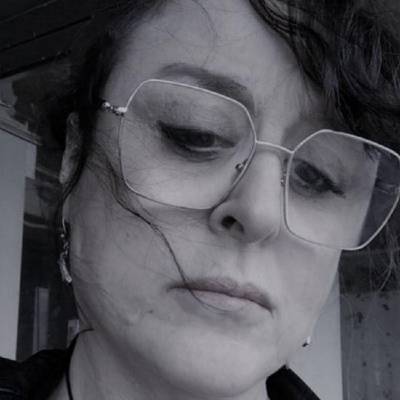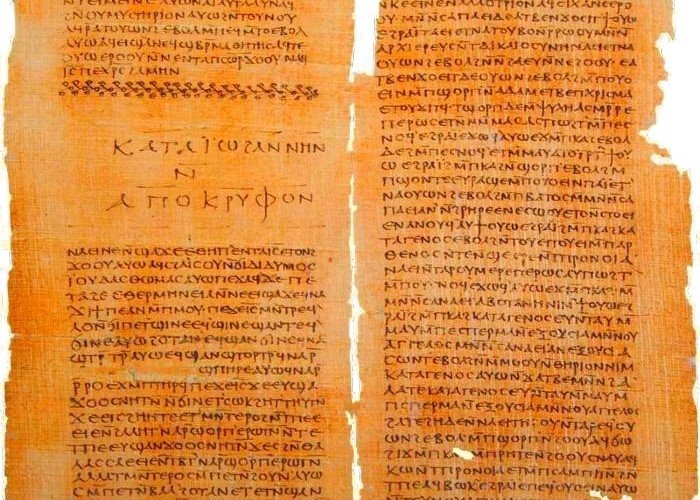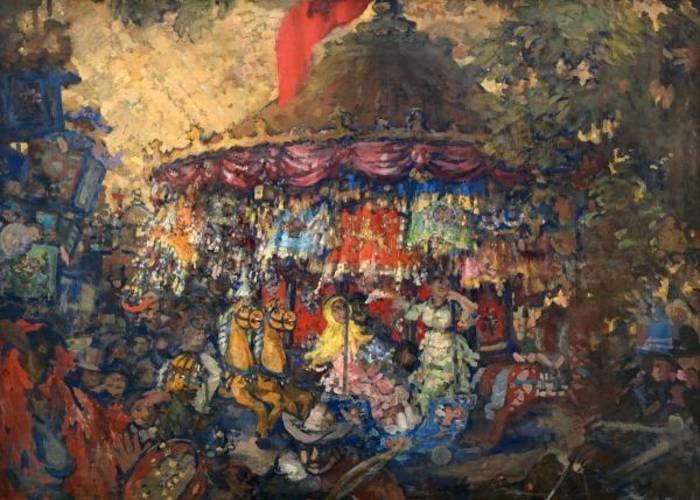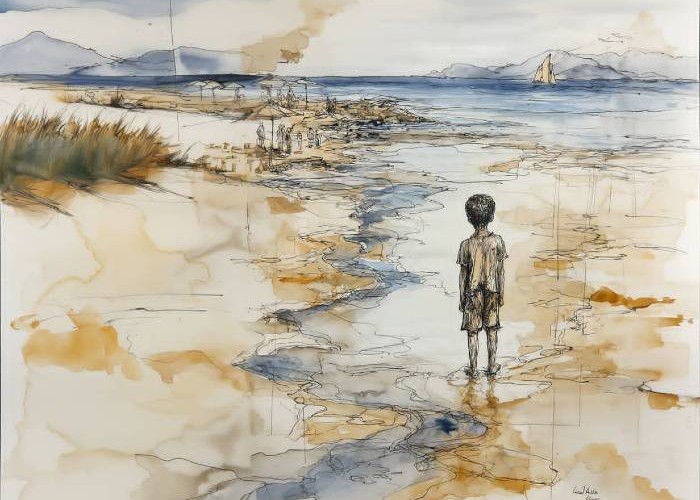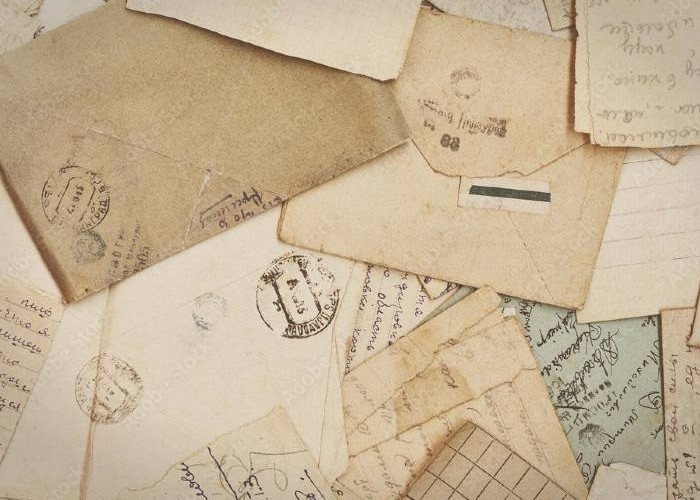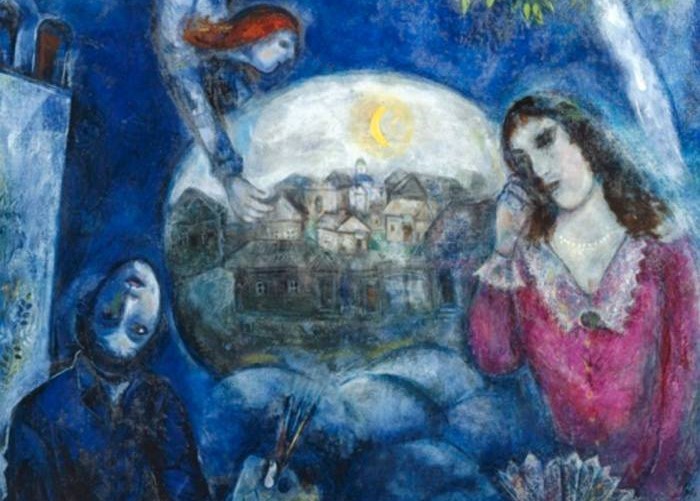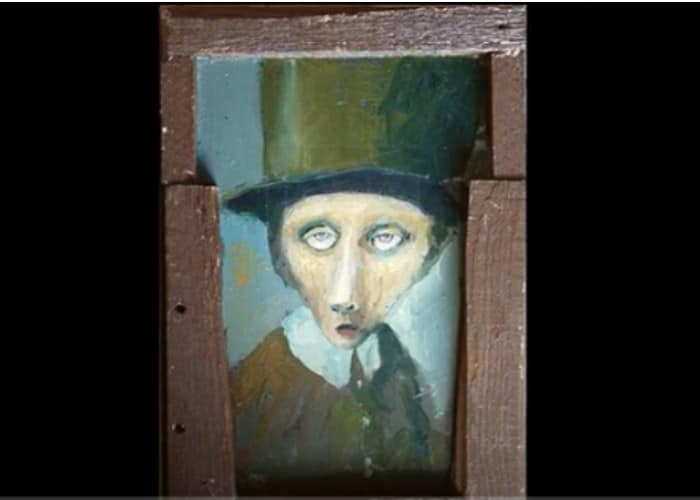(from “A Happy Village,” a cycle of short stories)
1
I caught a whiff of that old-fashioned smell of men’s perfume as soon as I heard the creaking of the stairs. I was nervous and my sense of smell was heightened. To get to my loft, this man had to traverse six – almost completely vertical – flights of stairs. Since my leg was in a cast, I went down the stairs, first dropping the crutches, then getting down on my loins–sliding down like a child on a slide, only more carefully. On my way up, I climbed the stairs the opposite way: first, I threw my crutches up on the next landing, then I crawled up. It was my own business how I did it; I was used to it. However, the appearance of a man giving off a whiff of sentimental perfume — a man who was on his way to this attic — gave me great anxiety; I would have even used the Russian “zametalas'” if, at the time, I were physically strong enough to actually do so.
2
I had been hit by a drunk driver from the Cape Verde Islands. As soon as the police and the ambulance arrived on the scene, the machine of the Dutch bureaucracy was at work. Jesus Christ may have stopped the sun, but I assert that he would not have been able to do the same with the machine of the Dutch bureaucracy. I heard of Dutch people who, having entered into a sincere relationship with this machine, became neurotic. They would come home from work, stand next to their mailboxes, and shudder. Right from their doorstep, they would rush to answer questionnaires, respond to proposals from alternative companies for reduced gas, electricity, and water bills, and apologies of the City Hall’s communal department, which explains that the street garbage bin can be moved by half a meter – and then you are asked whether you agree with this inconvenience. The machine seems to run on its own, but people get sucked into its vortex, from both ends. If you feed this machine, if you reply to it even once, you will get three letters, and if you send three replies, you will get so many letters that the wisest thing you can do is just throw it all away.
…Upon my return to the attic after the hospital, I saw a Mount Everest of official envelopes on the floor. I had trouble making my way to my mattress.
3
Those who claim that it is possible to survive in Europe speaking only English either never lived in Europe, or they happen to be deliberate misinformers, or else they might have inadvertently managed to marry a wealthy, gullible aborigine. From my personal experience, I would say that living in English is not so bad in Great Britain. By the time I was hit by a Mercedes in Rotterdam, I knew only two Dutch words: one was “mierenneuker” and the other was “gerechtsdoorwaarder. The first one meant “ant fucker,” i.e., “a pedantic bore,” and the second meant “bailiff”. With this knowledge, I dared not open any of the envelopes.
4
The Baron was brought to my attention by one of the residents in my building, who had thrown a grand feast to celebrate her divorce and had invited all of us. Well, “grand feast the Dutch way” means plates of canapés for twenty people and a plastic cup of alcohol – you have to hold it in your hand and talk about nothing for three hours. So basically, there was no reason for me to descend from my attic Olympus into this valley of woe. However, I did (in the way described above), because I was desperately looking for someone to help me with those letters. I was hoping that the letters, instead of advertising a laundry detergent, would describe mysterious mechanisms of surviving in a foreign land after a trauma.
5
My appearance there on my crutches elicited an active, positive reaction from the newly divorced woman, for the Dutch greatly value attempts at “social behavior”. She was quick to tell me that, while volunteering at the hospital, she had met Otto van … (I’ll omit his last name), a baron from Brussels who had been hit by a bicycle, and suffered, as she put it, “the same musculoskeletal injuries as you”. She also said that this man had the best of intentions and that he had plenty of time. She promised to call him. (As I realize now, a vindictive matchmaker awakens in any divorced woman, no matter how emancipated-Dutch she may be.)
6
…The Baron was middle-aged, tall, and well-built, and instead of wearing jeans and а T-shirt like most modern princes, he wore a light-colored plaid tweed blazer, its soft blue the color of his eyes and pants. But it was his light blue lace handkerchief in his top pocket, the color of his eyes, his pants, and the plaid, that got me. The Baron’s blond hair was styled in waves, like a lamb’s — and his blond eyebrows stood like surprised little houses. All in all, he had the (hateful to me) look of a man constantly discouraged by some unprecedented happiness. More precisely, the Baron had the face of an idiot constantly advertising a hitherto unknown sauce for cutlets on TV. And this cutlet sauce made him happier than anything else in his pre-sauce times.
7
He walked in and said:
“I do charity work. As my Christian duty commands me.”
“Well,” I thought. “Christ went into the lepers. Now you have to understand that no man has ever entered my attic, where the only thing lacking must have been bats. Even registered letters had been thrown by a letter carrier on the floor through a slot in the door. And here was the whole baron. It felt about the same as if Santa Claus visited me when I still believed in Santa Claus.
And I guess I would have freaked out about the whole situation if it hadn’t been for that stupid look on the Baron’s face. Which made it all go away at once. The new divorcee told me that it would probably be too late for the Baron to go back to Brussels, but that he was a man with a democratic frame of mind and therefore he would spend the night at my place. (She said this without fully understanding what the words “at my place” meant, in my case.)
8
I said:
“You will sleep on that mattress over there.”
He said:
“Perfect! Excellent!” – with that same unchanging expression of a man advertising a sauce.
We sat down at my rickety table, and I opened the first letter. Inside it was a questionnaire.
At this moment Otto asked:
“Where will I sleep?”
I repeated:
“On that mattress over there.”
And he said again:
“Wonderful! Perfect!”
9
“Marina, when were you born?”
I answered.
“What country, what city?”
I answered.
“Are you married, single, widowed, or divorced?”
Divorced, I said.
“Do you have children?”
“I do.”
“How many?”
“One.”
“Does the child live with you?”
“No. He is in another country.”
“What kind of education do you have?”
“Two college degrees.”
“What is your source of income?”
“None.”
“Bank account number?”
“I don’t have a bank account.”
10
I open the second letter and there is the questionnaire again. It’s a different color, on different paper, and has a different typeface. The order of the questions is also slightly different.
“What is your source of income?”
“None.”
“Do you have children?”
“I do.”
“How many?”
“One.”
“Does your child live with you?”
“No.”
11
We open a third letter. Another questionnaire.
“Marina, when were you born?”
I answer.
“In what country, what city?”
I answer.
“What education do you have?”
“Two university degrees.”
“What is your source of income?”
“None.”
That’s when I begin to realize that this man’s memory has been damaged somehow. The newly divorced woman couldn’t have known the full extent of his injuries. What “musculoskeletal system”! Discreetly, I take a closer look – and under his blond hair, I see a typical scar from trepanation.
12
I hear Otto’s voice:
“Marina, where were you born?”
Quietly, I push a plastic bag of envelopes under the table with my foot. I say:
“Well, now we are finished! Thank you!”
Otto says:
“Wonderful! Wonderful!”
And he looks at me with those happy blue eyes. They are the eyes of a being who is reborn every second. He does not retain his experience. Those pure eyes look at me with unearthly kindness and tenderness. Angels, unaware of time, flutter in their heavens, for there is no time in paradise. Otto radiates the joy of graceful recognition. Otto smiles. Otto wrinkles his straight noble nose in childlike joy. Otto squints in anticipation of more happiness.
“Marina, when are we going to answer the letters? We haven’t even started yet, and it will soon be night!”
Translated from Russian
